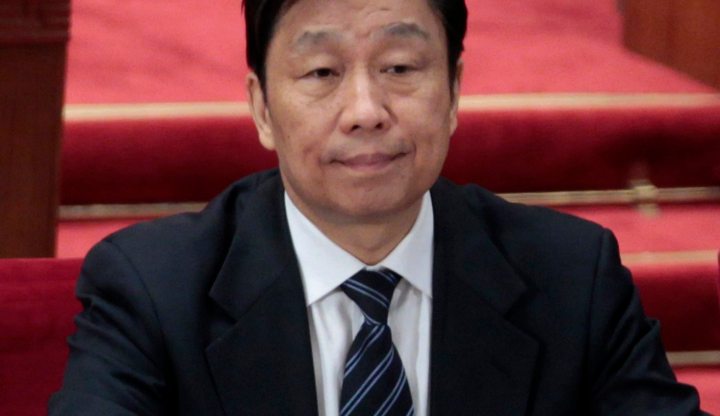Newsdeck
China’s Xi Flexes Muscle, Chooses Reformist VP – Sources

A reformist member of China's decision-making Politburo, Li Yuanchao, is set to become the country's vice president this week instead of a more senior and conservative official best known for keeping the media in check, sources said. By Benjamin Kang Lim and John Ruwitch.
Li’s appointment would be a sign that new Communist Party leader and incoming president Xi Jinping’s clout is growing, a source with ties to the leadership said. Xi fended off a bid by influential former president Jiang Zemin to install propaganda tsar Liu Yunshan in the job, the source said.
Jiang was a major power behind the scenes in the administration of outgoing President Hu Jintao.
The post of vice president is largely symbolic. However the job would raise Li’s profile, give him a role in foreign affairs and further bolster Xi, who took the the top jobs in the party and military at the Communist Party congress in November.
The promotion of Li may also signal a willingness on the part of Xi to pursue limited reforms that Li is known to have advocated in his previous posts, such as making the selection of Communist officials more inclusive.
Leadership changes in China are thrashed out behind closed doors through horse-trading between new leaders and outgoing or retired leaders anxious to preserve their influence and protect family interests, but reshuffles must go through a choreographed selection process.
Two other sources, who declined to be identified because it is sensitive to discuss elite politics with foreign media, also confirmed that Xi had decided to make Li his vice president rather than Liu.
The National People’s Congress, China’s rubber-stamp parliament, will vote in Xi and Li as president and vice president respectively on March 14. Li Keqiang, the party’s new No.2 official, will succeed Wen Jiabao to become premier and oversee the economy and day-to-day running of the cabinet.
“Li Yuanchao will be vice president, not Liu Yunshan,” the source with leadership ties said.
“It was Xi’s decision and a sign he is strong and able to say ‘no’ to Jiang,” the source told Reuters.
CONSOLATION PRIZE
In November, Liu was promoted to the seven-man Politburo standing committee with responsibility for propaganda and ideology. He has also taken over two of Xi’s previous positions: president of the Central Party School, which grooms up-and-coming cadres, and top seat on the Secretariat of the party’s elite 205-member Central Committee.
Liu served as propaganda minister from 2002 to 2012, keeping a tight leash on domestic media and China’s Internet, which has more than 500 million users.
His rival, Li, had been widely considered a top contender for a spot on the standing committee in November but party elders led by Jiang used a last-minute straw poll to block him from joining the body, sources have said.
The vice presidential appointment “in part is compensation for him not getting into the Politburo standing committee”, said Guo Liangping, a Chinese politics expert at the National University of Singapore’s East Asia Institute.
“That position has high exposure to the world, it’s high profile, probably more prestigious, but in terms of real power it’s limited.”
If Li makes it, it would mark the first time since 1998 that the vice president is not a member of the standing committee – the apex of power in China. Li sits on the 25-member Politburo, one notch below the standing committee.
But both Li and Liu are too old to be potential successors to Xi.
“This time it’s kind of a holding position,” said Kerry Brown, executive director of the China Studies Centre at the University of Sydney.
Li has been regarded as progressive for advocating incremental reforms in how the party promotes officials and consults the populace on policies, but how much influence he has as vice president will be, to a large degree, decided by Xi.
“If Xi wants a pro-active, tightly-allied kind of vice president, then the vice president will have power. If he wants a purely symbolic figure who is there to do absolutely nothing, then that’s what the vice president will do,” said Brown.
The vice presidency was created by a change to the constitution in 1982. President Hu served in that role from 1998 to 2003 which formally anointed him as heir apparent to Jiang. Xi also served in that role from 2008 until the present.
The duties of the vice president include assisting the president and taking over the presidency in the event the president resigns or dies in office.
Li, a “princeling” whose father was a former vice mayor of Shanghai, earned mathematics and economics degrees from two of China’s best universities and has a doctorate in law. He also spent time at Harvard University’s Kennedy School of Government. DM
Photo: Li Yuanchao, Organisation Minister of the China’s Communist Party Central Committee, attends the closing ceremony of the National People’s Congress (NPC), China’s parliament, at the Great Hall of the People in Beijing, March 14, 2012. REUTERS/Jason Lee



















 Become an Insider
Become an Insider